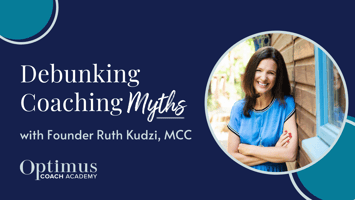You might be thinking, how are we different from other coach training providers? Here’s 10 reasons...
The Principles of Transactional Analysis
The Principles of Transactional Analysis
Ever heard of Transactional Analysis? It’s a psychoanalytic theory that helps us understand ourselves at a deeper level.
You can use the principles of Transactional Analysis to help yourself understand when you’re running an unhelpful programme. Or if you’re coaching, you can integrate the principles into your coaching approach and give your clients that clarity!
Let’s explore some of the principles now.
The Five Drivers
A key part of Transactional Analysis involves identifying drivers. Drivers tell us a lot about how someone sees the world, and gives us clues into their childhood experiences.
Our drivers point to behaviours we developed in childhood to keep us feeling OK. They are what we felt we needed to be in order to feel safe.
While some drivers can be helpful in certain situations, they can also cause us stress and anxiety.
Here are the FIVE drivers Transactional Analysis identifies:
1) The Be Strong Driver
If you have a drive to ‘be strong,’ you believe in toughing it out, no matter what. You probably bottle up your emotions and won’t engage with them. While you excel in a crisis situation, the lack of connection to your emotions can have a negative impact on your mental wellbeing.
Remember: it’s OK to feel and it’s OK ask for help!
2) The Please Others Driver
You put the needs of others before your own. People-pleasers aren’t great at sticking to their boundaries. Let’s be honest, they might not have set any!
They often shower their family and friends with care and concern, however they struggle to get their own needs met. When they notice others aren’t giving them the same level of care and attention, they can develop resentment.
Remember: it’s OK to put yourself first.
3) The Hurry Up Driver
If you’re a ‘Hurry Up’ driver, you want things done quickly. You rush around, trying to get every task ticked off and barely take a moment to breathe. You might eat fast, talk fast and demand that everyone else speed up too. This can lead to fatigue, and even if you’re getting a lot done, your work might not meet the quality it could.
Remember: it’s OK to slow down and smell the roses
4) The Be Perfect Driver
The ‘Be Perfect’ drivers need everything done the ‘right’ way. If you’re a ‘be perfect’ driver, you put a great deal of effort into your work and need everything to be, well… perfect!
Perfect drivers can be meticulous, and can often take more time performing tasks because everything must be just so. Their work will usually be finished to a high standard – true, but they pay with anxiety and probably too much of their time to meet those high standards.
Remember: it’s OK to be human
5) The Try Hard Driver
“Try Hards” feel they must work hard all the time. They believe there’s always more that they can do. This can lead to frustration and can affect their overall wellbeing. Those with this driver can carry an intense fear of failure.
Remember: it’s OK to switch off from work
So, those are the different drivers in a nutshell. When you’re under pressure, what kind of mode do you go into? What driver is behind your behaviours?
Adult, Parent and Child Mode
Transactional Analysis also suggests we can either be in adult mode, parent mode or child mode. And which role we’re occupying can change during the day, depending on the situation we’re in, or who we’re interacting with!
These are known as different ego-states. By seeing when we’re operating within each, we can understand ourselves, or our clients, much better.
Not to mention… we can improve how we communicate with others. If we can see we enter the criticising parent mode with our partner, for example, we can begin to change this to step into the healthier ‘adult’ mode.
The Drama Triangle
Dealing with conflict in your life? You could be playing a particular role within a drama triangle. According to Transactional Analysis, every drama triangle is made up of three roles.
These are:
- The persecutor: the one that is controlling, oppressive and critical
- The victim: the one who is passive and persecuted, often powerless and unable to make decisions.
- The rescuer: the hero that feels guilty if they don’t go in and rescue. They feel valued when they’re needed by others.
The drama triangle is an important social model of human interaction, and understanding it can help us improve our relationships and interactions with other human beings. Once we notice which role we’re playing, we can take steps to develop healthier responses to conflict.
Why Transactional Analysis?
To sum up, Transactional Analysis can lead to greater awareness in us and our clients, and help us see how our childhood experiences have shaped us as adults. With Transactional Analysis, we can identify unhelpful behaviours and work on developing healthier ones, making life and our relationships that bit easier!
Did you know we teach Transactional Analysis as a module on our Professional Coaching Diploma course? It’s part of our curriculum, along with several other evidence-based approaches (Neuroscience, Positive Psychology, Somatics and more…).
If you’d like to advance your coaching skills or kickstart your coaching career, our course is a great option. It’s comprehensive, covering everything you need to be a successful and life-changing coach. Plus, thanks to its high standards, it’s accredited by the ICF!
Have a look at our course here. We’re enrolling for September now.


.jpg?height=200&name=Thumbnail%20(2).jpg)

